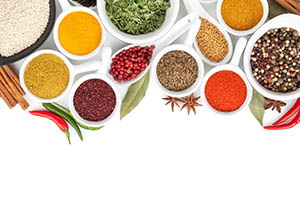
At the end of October, the National Organic Standards Board (NOSB) convened for its biannual meeting to discuss and vote on National List material sunset reviews, petitions to add and remove materials from the National List, and discussion documents.
Several processing inputs and ingredients were voted for removal from the National List. Please note that NOSB recommendations are not enforceable by certifiers. The procedures from NOSB recommendations to an enforceable final rule are as follows:
- The National Organic Program (NOP) must accept the NOSB recommendations.
- The NOP publishes a proposed rule that reflects those recommendations.
- There is an opportunity for public comment.
- The NOP finalizes and publishes the final rule.
If your operation uses any of the materials voted for removal from the National List, QAI encourages you to keep track of proposed regulatory changes so that you will have the opportunity to submit comments if needed. To ensure you’re alerted about important industry updates such as the timeline for accepting public comments, we recommend that you sign up for the NOP Organic Insider newsletter.
Here’s a detailed summary of NOSB Fall 2020 meeting outcomes:
Handling:
- Ion exchange: The board voted on the motion to recommend that ion exchange recharge materials, but not the resins or membranes themselves, must be reviewed and included on the National List. This recommendation did not pass and will go back to the handling subcommittee for further review. There were concerns that ion exchange resins might “leak into organic product” and pose a contamination risk. In the meantime, QAI’s policies on ion exchange filtration remain in place:
- The use of ion exchange filtration must be approved as part of an operation’s Organic System Plan.
- Recharge materials must be included on the National List and used in compliance with applicable annotations.
- Pending further review by the NOSB, QAI does not currently require that ion exchange resins be included on the National List.
- The petition to add low acyl gellan gum to the National List at 205.605(b) passed.
- All handling sunset materials were voted to be relisted on the National List, except that the following non-organic agricultural substances were voted for removal:
- Black currant juice color
- Blueberry juice color
- Carrot juice color
- Cherry juice color
- Grape juice color
- Paprika color
- Pumpkin juice color
- Turmeric extract color
- Kelp
- Turkish bay leaves
Livestock:
- The motion to permit the use of fenbendazole as a parasiticide for use in laying hens or replacement chickens intended to be laying hens failed. As such, fenbendazole will continue to be prohibited for this use.
- All livestock sunset materials, including EPA List 4 inerts of minimal concern, were voted to be relisted on the National List.
Crops:
- The motion to amend the 205.601(j)(1) aquatic plant extracts listing and to add marine macroalgae to 205.602 as a prohibited non-synthetic crops input passed. This could result in prohibiting the use of marine macroalgae-derived products as a crop input unless harvested under defined parameters.
- The motion to amend the 205.601(j)(8) liquid fish products listing to require that such products are sourced only from fish waste, bycatch or invasive species passed. Additionally, the motion to add definitions of fish waste and bycatch to 205.2 passed.
- The petition to add sodium carbonate lignin at 205.601(j)(4) failed. As such, sodium carbonate lignin will continue to be prohibited.
- All crops sunset materials, including EPA List 4 Inerts of minimal concern, were voted to be relisted on the National List.
